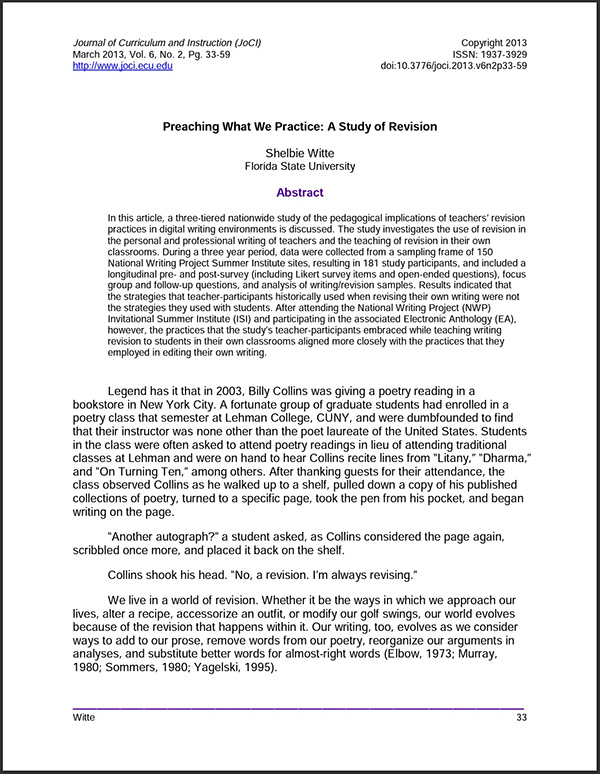Summary:
In what ways do teachers of writing use revision in their own writing? How do digital writing environments impact revision and its instruction? What are teachers’ perceptions of revision in their own writing and in writing instruction in the classroom? Shelbie Witte’s research investigated these questions among teachers who participated in National Writing Project summer institutes and contributed to the NWP E-Anthology. This insightful and accessible article on revision practices and habits can become a part of any writing teacher’s repertoire about best instructional choices for student writers based on teachers’ own writing practices.
Excerpt
“Teachers of writing must take on several different roles: they must guide students through the writing process, act as audience to students’ writing, and evaluate or assign a grade to student work. Teachers are torn between these roles causing feedback that tends to fall on a continuum between evaluative feedback, which tells students how well they met the requirements of the assignment, and formative feedback, which asks the writers to clarify and reshape their pieces to effectively communicate their points (McGarrell & Verbeem, 2007). Teachers need to help students realize that revising is not about just fixing grammatical and surface errors, but also refers to the strength of an argument and overall structure of the piece, including content (Sommers, 1980). How teachers see their role and their relationship to students’ writing affects the feedback they give.”
Download “Preaching What We Practice: A Study of Revision” (PDF) →


